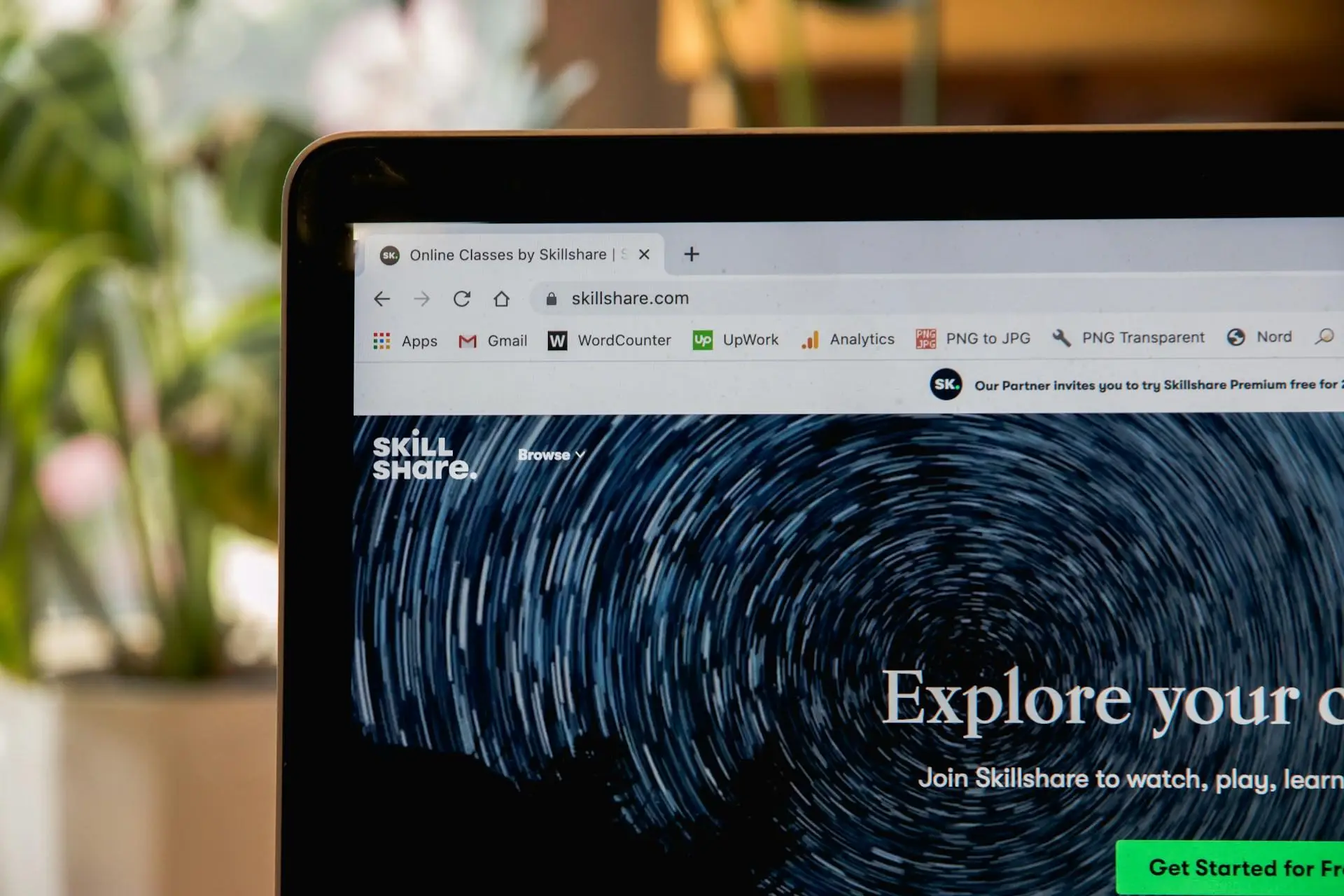How Modern Education is Being Shaped by Online Learning Platforms
In the digital age, education has undergone a significant transformation, largely due to the emergence and proliferation of online learning platforms. Platforms such as Coursera, Khan Academy, and Udemy have revolutionized the way knowledge is disseminated and acquired, breaking down traditional barriers and redefining educational norms. These online learning platforms have not only increased accessibility to education worldwide but have also provided personalized learning experiences, challenging and complementing traditional educational models.
The Rise of Online Learning Platforms: A New Era in Education
The concept of online education is not entirely new; however, advancements in technology and the widespread availability of the internet have propelled online learning platforms to the forefront of modern education. Starting as simple repositories of information and basic e-learning courses, these platforms have evolved into sophisticated ecosystems offering a vast array of courses across numerous disciplines, catering to diverse learning needs and preferences.
The global reach and flexibility offered by online learning platforms have democratized education, making it possible for anyone with an internet connection to access high-quality learning resources. This shift has not only expanded educational opportunities but has also fostered a culture of lifelong learning, where individuals continuously seek to enhance their skills and knowledge in an ever-changing world.
Enhancing Accessibility and Inclusivity in Education
One of the most profound impacts of online learning platforms is their ability to make education more accessible and inclusive. Traditional education systems often face limitations related to geography, socioeconomic status, and rigid scheduling, which can impede individuals' ability to pursue learning opportunities. Online platforms effectively address these challenges by offering flexible and affordable education options.
Breaking Geographical Barriers
Online learning platforms have effectively dissolved geographical constraints, enabling learners from all corners of the globe to access educational content that was previously out of reach. Students in remote or underserved regions can now enroll in courses offered by prestigious institutions and learn from experts in various fields without the need to relocate or incur significant travel expenses. This global accessibility fosters cross-cultural exchange and understanding, enriching the educational experience for learners worldwide.
For instance, platforms like edX and Coursera partner with top universities to provide courses that attract millions of learners internationally. These platforms have enabled students from developing countries to gain knowledge and skills that contribute to personal development and economic growth in their communities.
Providing Opportunities for Non-Traditional Learners
Traditional education models often cater to specific age groups and schedules, leaving out individuals who do not fit these conventional molds. Online learning platforms offer unparalleled flexibility, accommodating non-traditional learners such as working professionals, parents, and individuals seeking career changes or additional qualifications.
Learners can access course materials at their convenience, allowing them to balance education with other life responsibilities. This flexibility also supports adult learners in pursuing continuing education and professional development, which is essential in today's fast-paced and evolving job market.
Bridging the Educational Divide
Despite progress in global education, significant disparities persist in access to quality education. Online learning platforms play a critical role in bridging this educational divide by providing free or low-cost learning opportunities to underserved populations. Initiatives like Khan Academy offer comprehensive, free educational resources across various subjects, empowering students who may lack access to quality schooling.
Moreover, programs like MOOCs (Massive Open Online Courses) have opened doors for millions to learn and improve their skills without financial burdens. Scholarships and subsidized courses further enhance inclusivity, ensuring that socioeconomic status does not hinder one's educational aspirations.
Delivering Personalized Learning Experiences
Beyond accessibility, online learning platforms have revolutionized the personalization of education. Traditional classrooms often struggle to cater to the individual learning styles and paces of students, leading to varying degrees of engagement and comprehension. Online platforms leverage technology to tailor learning experiences, enhancing effectiveness and learner satisfaction.
Adaptive Learning Technologies
The integration of adaptive learning technologies allows online platforms to customize educational content based on individual learner performance and preferences. By employing algorithms and data analytics, these platforms can adjust the difficulty level, presentation style, and pacing of material to suit each learner's unique needs.
For example, platforms like Duolingo utilize adaptive learning to teach languages, adjusting lessons in real-time based on the user's progress and proficiency. This personalized approach helps maintain engagement and promotes better retention of information.
Flexibility in Learning
Online learning offers unparalleled flexibility, enabling learners to study at their own pace and on their own schedule. This self-paced learning environment accommodates different learning speeds and allows individuals to spend more time on challenging concepts while quickly moving through familiar material.
Additionally, the ability to access courses anytime and anywhere caters to diverse lifestyles and commitments. This flexibility not only improves learning outcomes but also reduces stress and enhances the overall educational experience.
Diverse Course Offerings
Traditional education systems may be limited in the range and depth of courses they can offer due to resource constraints. Online platforms provide an extensive array of courses across numerous disciplines, including specialized and niche subjects that may not be available in conventional settings.
Learners can explore and pursue interests beyond standard curricula, fostering a more well-rounded and enriched education. This diversity also supports career development by providing access to specific skill-based courses relevant to current job markets and emerging industries.
Addressing Challenges and Limitations of Online Learning Platforms
While online learning platforms offer numerous benefits, they also face several challenges and limitations that must be addressed to maximize their effectiveness and reach.
Ensuring Quality and Credibility of Online Education
One of the primary concerns surrounding online education is maintaining the quality and credibility of courses and certifications. The absence of standardized accreditation processes can lead to variability in course quality, potentially undermining the value of online credentials.
To address this, many platforms collaborate with accredited institutions and industry experts to develop and deliver high-quality courses. Additionally, implementing rigorous assessment methods and proctoring systems can enhance the credibility of online certifications, making them more widely recognized and respected.
Overcoming the Digital Divide and Access to Technology
Despite the widespread availability of the internet, a significant portion of the global population still lacks reliable access to digital technologies necessary for online learning. The digital divide poses a substantial barrier to the inclusivity and effectiveness of online education.
Governments and organizations must invest in infrastructure development and provide affordable access to technology to bridge this gap. Initiatives such as distributing low-cost devices, expanding broadband coverage, and creating community learning centers can help ensure that more individuals can benefit from online learning opportunities.
Mitigating the Lack of Social Interaction and Collaborative Learning
Online learning environments often lack the face-to-face interaction and collaborative experiences inherent in traditional classrooms, which are crucial for developing social skills and fostering a sense of community.
To mitigate this, online platforms are incorporating interactive features such as discussion forums, group projects, live webinars, and virtual classrooms to facilitate engagement and collaboration among learners. Additionally, leveraging social media and communication tools can enhance connectivity and build supportive learning communities.
The Future of Online Learning and Its Integration with Traditional Education
As technology continues to advance and educational needs evolve, online learning platforms are poised to play an increasingly integral role in the future of education. The convergence of online and traditional education models promises to create more flexible, effective, and inclusive learning environments.
Embracing Blended Learning Models
Blended learning, which combines online and in-person instruction, is emerging as a powerful approach that leverages the strengths of both modalities. This model offers the flexibility and personalization of online learning while maintaining the social interaction and hands-on experiences of traditional classrooms.
Educational institutions worldwide are adopting blended learning strategies to enhance teaching effectiveness and student engagement. For example, universities incorporate online lectures and resources to supplement classroom instruction, allowing for more interactive and application-focused in-person sessions.
Integrating Online Platforms into Higher Education
Higher education institutions increasingly recognize the value of online learning platforms in expanding their reach and enriching their curricula. Partnerships between universities and online platforms enable the offering of accredited online degrees and certificates, providing students with more flexible and accessible higher education options.
Moreover, online platforms facilitate collaborative research and global academic exchange, fostering innovation and knowledge sharing across borders. The integration of online learning into higher education also supports continuous professional development, essential in today's dynamic job markets.
Innovating Through Emerging Technologies
Emerging technologies such as Virtual Reality (VR), Augmented Reality (AR), and Artificial Intelligence (AI) hold tremendous potential to further transform online education. These technologies can create immersive and interactive learning experiences, enhancing engagement and comprehension.
For instance, VR and AR can simulate real-world scenarios for practical training in fields like medicine and engineering, while AI can provide even more sophisticated personalization and support through intelligent tutoring systems. As these technologies become more accessible and integrated into online platforms, the quality and effectiveness of online education are expected to reach new heights.
Conclusion: Harnessing the Full Potential of Online Learning Platforms
The advent and evolution of online learning platforms have undeniably transformed the educational landscape, offering unprecedented accessibility, personalization, and flexibility. By addressing existing challenges and continually innovating, these platforms can further enhance learning experiences and outcomes, making quality education truly universal and adaptable to the needs of a diverse, global population.
As we look to the future, the synergy between online and traditional education models promises to create more holistic and effective learning environments. Embracing and investing in online learning platforms will be crucial in preparing individuals and societies to navigate and thrive in an increasingly complex and interconnected world. The continued evolution and integration of these platforms stand to not only reshape education but also empower learners to unlock their full potential and contribute meaningfully to the progress of society.




